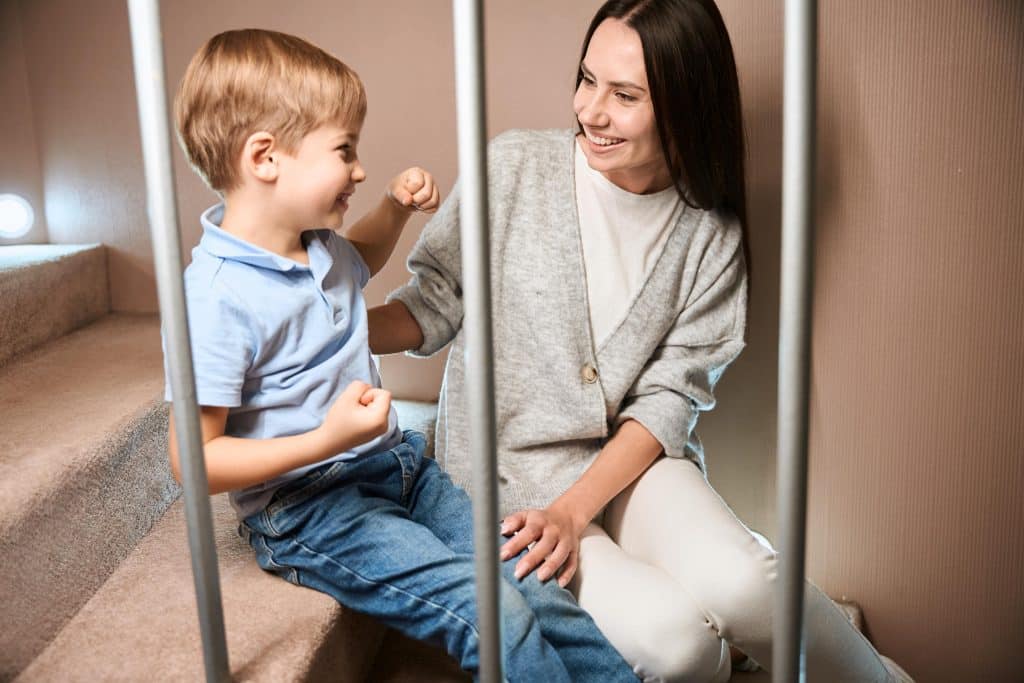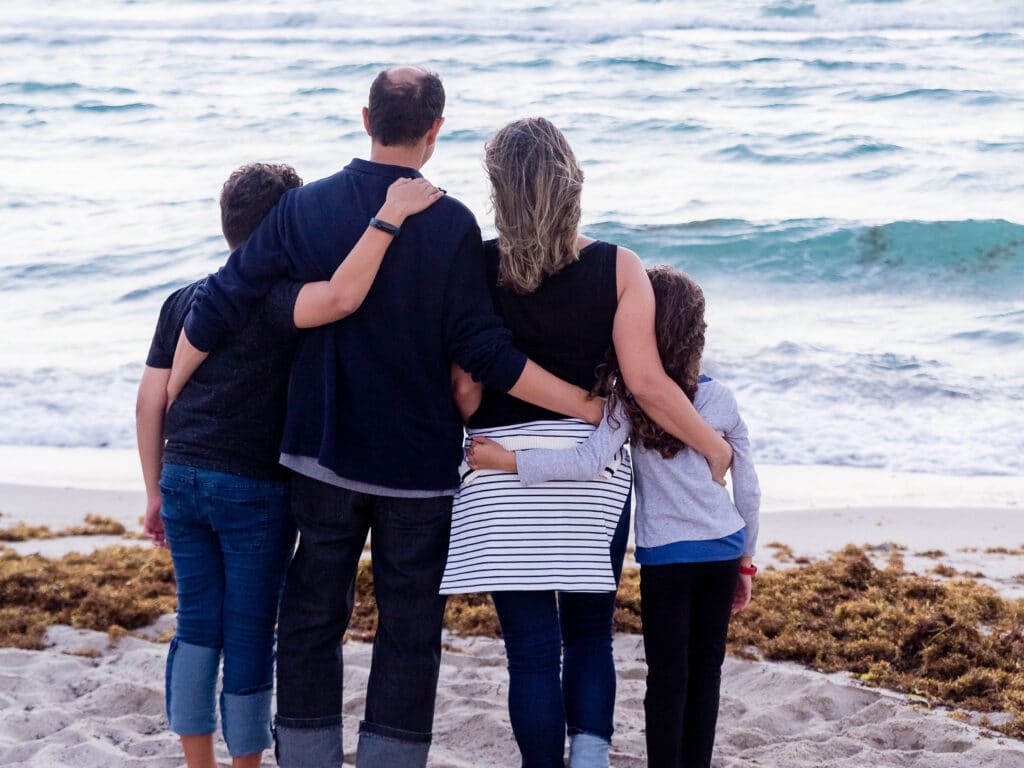What Rights do I have as a Father?
With Father’s Day approaching, it is understandable that you may be thinking about your children and considering what rights you may have in relation to their upbringing. At Freeman Jones Solicitors, many of our clients are single fathers struggling to understand what rights they are entitled to in regard to. This is not surprising considering that the law differs in relation to a mother’s and father’s rights.
Our family law solicitors are dedicated to helping you understand what rights you legally have as a father and making sure that there is a fair balance between both parties, giving children the rights they deserve to bond with both parents equally.
What does ‘Parental Responsibility’ mean?
Parental responsibility stands for the legal rights and requirements which an individual must undertake in relation to their children. If you have parental responsibility, you are responsible for a number issues such as:
- Providing a home for the child
- Protecting and maintaining the child
- The child’s medical treatments
- Choosing and providing for the child’s education
- Disciplining the child
Do I have Parental Responsibility?
If you and your ex-partner are unmarried, a mother automatically has parental responsibility, but the law is slightly different for fathers. For births registered in England & Wales, you will have parental responsibility if:
- The birth of the child was registered after 1 December 2003, and you are listed as the father on the birth certificate.
- The child was born before 1 December 2006 with no father listed on the birth certificate, but are subsequently added due to re-registration of the birth.
- If you and the child’s mother sign a Parental Responsibility Agreement, giving you parental responsibility.
- If you receive a parental responsibility order by the court or obtain a Residence Order allowing the child to live with you.
Even if the mother subsequently loses capacity to look after the child, or passes away, parental responsibility does not pass automatically to the father, so one of the above must be present.
The law is slightly different again for separated same-sex couples. After a civil partnership has ended, you will have parental responsibility only if you have received one of the two orders mentioned above, or if you were civil partners at the time of the relevant treatment (e.g. donor insemination or fertility treatment).
I do not have Parental Responsibility – do I have any parental rights?
The short answer is no. However, it is not too late to acquire them now. If you and the mother of the child have good communication, a conversation asking for parental responsibility may be all that is needed for you to gain such responsibility. If she is unwilling, you can make a direct application to the court (as mentioned above), where they will consider the various circumstances of the case and the commitment you are able to offer to the child. They will then make a fully informed decision based on all the surrounding facts.
What rights will Parental Responsibility give me?
If you are given parental responsibility, you will have a say in your child’s upbringing, even if they do not reside with you. You will not be entitled to make decisions about every aspect of your child’s day-to-day life if they do not live with you, but when it comes down to important decisions, you will have just as many rights as the mother. Parental responsibility allows you to have the right to be consulted over issues such as:
- Any change of schools.
- Medical issues
- Change of name
- Leaving the country for holidays
Can I get Parental Responsibility as a Stepfather?
As with biological fathers, stepparents do not automatically gain parental responsibility for the child. This can be an area of dispute because stepparents play a major role in children’s lives. Furthermore, a stepparent cannot gain Parental responsibility just by being married to the child’s biological parent.
A stepparent in England and Wales, can gain Parental responsibility in the following circumstances:
- Where a Child Arrangement order is put into place by the court stating that the child lives with the stepparent either on their own or with another person.
- When the stepparent adopts a child, putting them in the same position as a biological parent
- A Parental Responsibility Agreement to which all the other people with Parental Responsibility consent (sonly available if married to the biological parent)
- When the Court has made a Parental Responsibility Order following an application by the stepparent.
If you obtain Parental Responsibility, as a stepparent, you will gain the same duties and responsibilities as a biological parent.
Can I see my children?
The father of a child has just as many rights as the mother regarding contact and visitations.
Sometimes, both parties can agree on a fair schedule amicably between themselves, however, this is not always possible, and a mediator will be required to guide you towards a mutually beneficial agreement. Such a decision will not be binding by law, but an application to the court can be made, asking for the terms to be brought into a Court order which will be legally binding on both parties. If an order is broken, the Court have the right to take steps to remedy it and enforce the order.
Alternatively, if an agreement cannot be reached, even with the help of a mediator, a court application can be sought in which the court will consider the circumstances and make a decision which it thinks fit.
Legally, a mother cannot prevent the father from seeing their children without good reason. There are many options we can help you take to acquire rights to see your children, whether that is a residence or contact order or providing a mediator to help yourself and the mother come to a more suitable arrangement. Our main priority lies with the children, allowing them to have contact, as far as possible, with both parents.
Our family lawyers at Freeman Jones Solicitors take a no-nonsense approach when dealing with our cases, and so if you feel that you are being treated unfairly and being kept purposely from your children, do not suffer alone. Our lawyers have years of experience dealing with child arrangement disputes and can help you to become back in control of your life.
Child Maintenance Fees
Our family law solicitors also have a plethora of experience in assisting clients on how much child maintenance they need to pay. Child maintenance is paid by one parent (whom the child does not live with) to the other parent. There are 3 main ways in which child maintenance fees can be decided.
- Family-based agreement – this is an agreement put in place between you and the child’s mother, concerning how much maintenance ought to be paid and how often. It is usually the cheapest, quickest, and most amicable way of dealing with child maintenance.
- The Child Maintenance Service (CMS) – this is a government scheme that was set up to calculate the maintenance payment for you. There may be charges if the CMS is involved in your case.
- Court Order – the court has the power to set maintenance payments in place and this is usually done when one parent earns considerably more than the other.
Whether you feel as though you are not getting your fair share of rights or whether you just have a query as to how a separation will affect you, our Freeman Jones Solicitors are on hand to guide you in the right direction.





